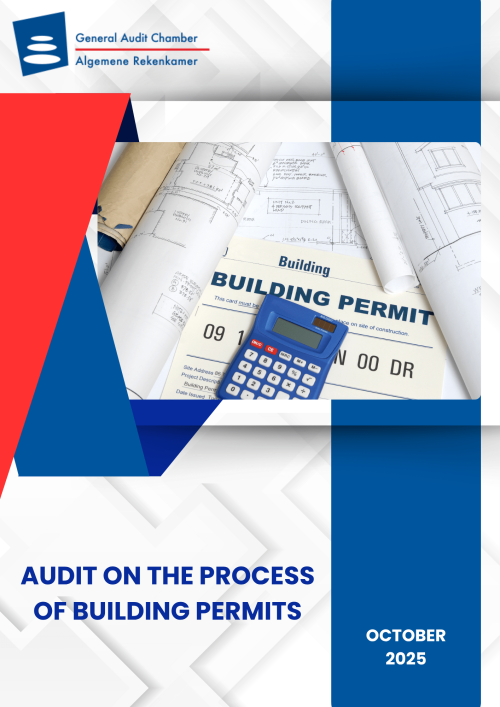 PHILIPSBURG:--- The General Audit Chamber published its report “Performance Audit on the Building Permit Process”, reviewing how building permit applications are handled and whether the current process supports efficiency, legal compliance, and integrity. The audit responds to long-standing public concerns about delays, inconsistent decisions, and allegations of undue influence. The findings confirm that these issues stem primarily from structural weaknesses in the system.
PHILIPSBURG:--- The General Audit Chamber published its report “Performance Audit on the Building Permit Process”, reviewing how building permit applications are handled and whether the current process supports efficiency, legal compliance, and integrity. The audit responds to long-standing public concerns about delays, inconsistent decisions, and allegations of undue influence. The findings confirm that these issues stem primarily from structural weaknesses in the system.
The audit shows that the Permit Department within the Ministry of VROMI works under challenging conditions. At the same time, the review identifies several structural issues that limit the effectiveness of the current process. The legal framework depends heavily on older legislation and non-binding policies, and an island-wide zoning plan has not yet been finalized through legislation.
The Audit Chamber observed that the workflow lacks a written process. Applications are logged digitally, yet processing and advisory steps continue to take place outside the system through manual and email-based exchanges, leaving room for improvement in centralizing information. This makes it difficult to monitor progress, manage workloads, or maintain a complete audit trail. Expert advice from entities such as the Fire Department and Inspection Department plays an essential role in maintaining public safety and infrastructure, but the absence of uniform procedures affects consistency.
During the investigation, the Audit Chamber also identified risks of fraud and undue influence arising from structural weaknesses in the system. The absence of written procedures, informal ways of consulting both applicants and external entities, lack of proper oversight, and the fact that deviations from the Minister's internal or expert advice do not require documentation create vulnerabilities that could be exploited. These risks are publicly raised and underscore the need for stronger governance.
Limited capacity adds to the problem. The Permits Department works with a small team, and the job functions do not require the technical qualifications needed for complex decisions. The Fire Department, which plays an important advisory role, had only one staff member handling all building permit requests at the time of the audit. These shortages contribute to backlogs, which can directly affect public safety.
To complement the audit work, a survey was conducted among persons and entities who submitted building permit applications between 2020 and 2024. While not representative, the Audit Chamber notes a response rate of 89 out of 269 (33%). Many respondents reported dissatisfaction with the current process, uncertainty about processing times, and that environmental consequences should play a more prominent role in the assessment process. A little under 10% of respondents reported being approached with an offer to expedite their application. While this result does not demonstrate systemic corruption, it suggests that such practices occur. Considering the sensitive nature of the question, the Audit Chamber notes that some respondents may have chosen not to disclose their experiences out of concern for repercussions. These findings suggest that integrity risks exist within the permitting process.
Given the outcome of the investigation, the General Audit Chamber strongly recommends modernizing the legal framework, introducing written procedures, regulating that deviations by the Minister are motivated, training staff, revising the function book to require domain-specific expertise, and automating the permitting process to improve consistency, traceability, and service to the public. Automation would also help establish an audit trail, provide management data, and allow applicants to track their applications in real time.
The full report is available on the website of the General Audit Chamber: www.arsxm.org